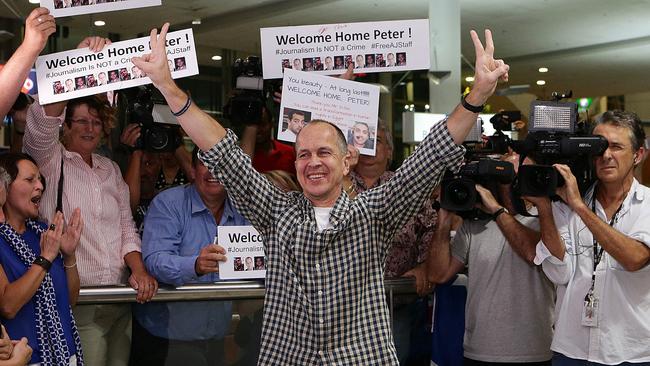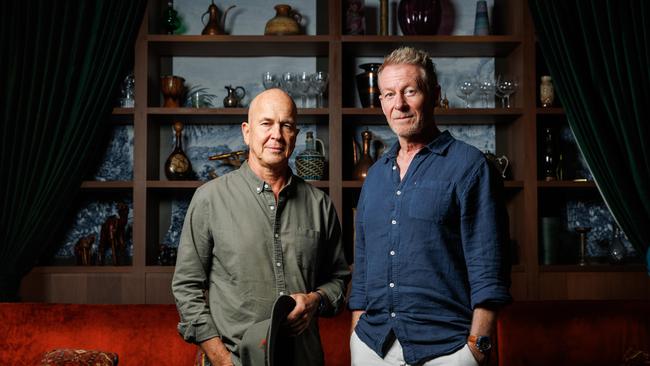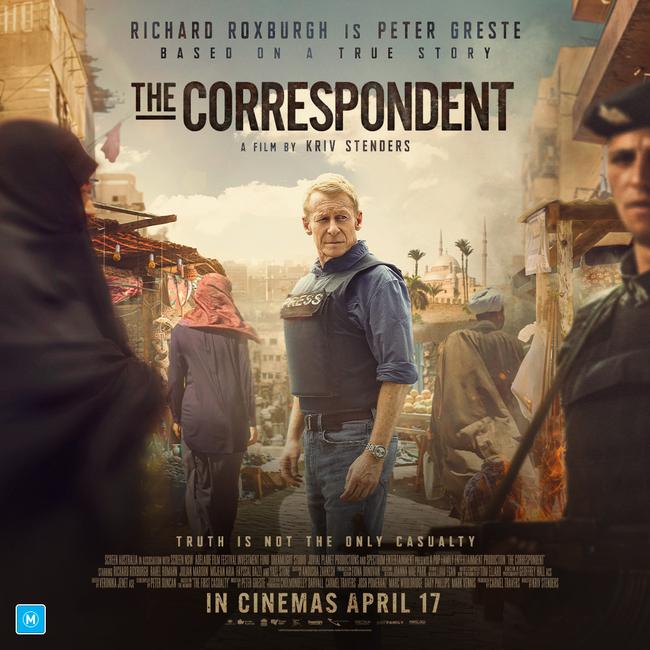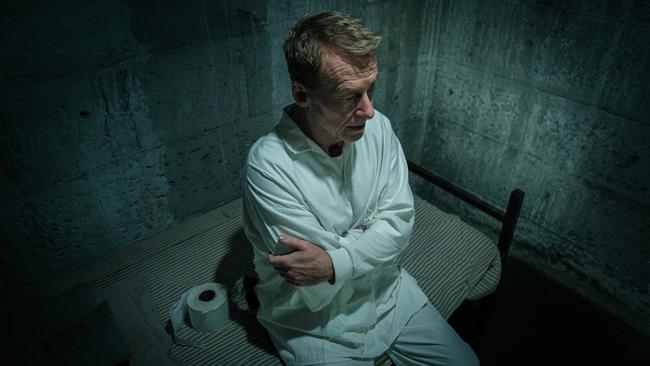The Correspondent, starring Richard Roxburgh as Peter Greste, hits Australian cinemas today
A powerful new Australian film based on the real-life imprisonment of Brisbane journalist Peter Greste opens in cinemas on Thursday, with an acting legend in the main role.

Entertainment
Don't miss out on the headlines from Entertainment. Followed categories will be added to My News.
The harrowing true story of Brisbane journalist Peter Greste’s imprisonment in Egypt has been brought to life in a major new Australian film, The Correspondent, which opens in cinemas nationwide on Thursday.
Starring Richard Roxburgh as Greste, in what’s being hailed as a career-best performance, the political thriller follows the journalist’s 436-day ordeal after he was arrested on terrorism charges in Cairo while reporting for Al Jazeera in 2013.
Directed by Kriv Stenders (Red Dog) and based on Greste’s memoir The First Casualty, the film chronicles his descent into solitary confinement, the surreal twists of a sham trial, and the global fight to free him.
Its release coincides with the 10th anniversary of Greste’s return to Australia.

Greste admitted the idea of a film adaptation once seemed far-fetched.
“We joked about it in prison, of course, among ourselves … who’d play us in the movie,” he said. “But… I honestly never anticipated that I’d end up here.”
At the time, he pictured a different kind of leading man.
“I had one of the Hemsworths in mind. I thought they might be able to embody the physicality of the role,” he laughed.

But when Roxburgh was suggested, Greste said it instantly felt right.
“Once Rox’s name came up, it became very clear that that was the person for the job… I was honestly really delighted.”
He was also closely involved in shaping the film, from early script drafts to time on set.
“Right from the get-go, [executive producer] Carmel Travers wanted me to be a part of the process,” he said.
“I saw every draft of the script, and I made comments and feedback… I spent a day on set.”
“Once these guys showed genuine curiosity and empathy… I felt as though I could trust them with the story.”

Watching his life reimagined on screen, Greste said, was “quite triggering” but ultimately rewarding.
“It nails a lot of the feeling of the experiences that I went through… the really weird, discombobulating moment of my release… all of that’s in there.”
Roxburgh, who has previously portrayed real-life figures including Bob Hawke, said playing Greste required a different level of internal focus, one that mirrored the isolation Greste endured in prison.
“Normally, I’m pretty social on film sets. I like to hang out with the crew and other actors at lunchtime,” he said. “And I didn’t do any of that on this.”

He deliberately kept to himself throughout the shoot in order to stay emotionally close to the role.
“I guess I set myself at a distance… I didn’t talk much,” he said. “There was something about that… to do with self-isolation.”
Roxburgh said the decision helped him access the emotional extremes the story demanded without needing to force it on camera.
“You need to go to emotional extremes… and in this, I needed myself in a different, essential, emotional, hermetically sealed container.”
Both men hope the film sparks conversation about the importance of journalism.
“Journalistic freedoms are under attack everywhere,” Roxburgh said.
“If [this film] provokes discussions… about what’s happened to journalism… then I think we’ll have done something really worthwhile,” Greste added.



